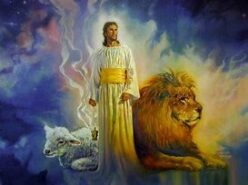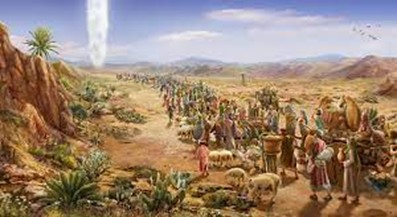Use Your Doubt to Build Your Faith!
A quote on doubt and faith by Paul Tillich, a Christian theologian:
“Doubt isn’t the opposite of faith; it is an element of faith. Where there is no room for doubt, there is no room for me.”
Doubt is a natural part of the human experience, especially when it comes to matters of faith. It is common to have questions, uncertainties, and even skepticism about the beliefs we hold dear. However, doubt does not have to be a destructive force. Instead, it can be used to build and strengthen our faith.
One way to use doubt to build your faith is to approach it as an opportunity for growth. Rather than pushing your doubts aside or pretending they don’t exist, take the time to explore them. Ask questions, seek out answers, and engage in discussions with others who may have different perspectives.
In the process, you may discover new insights and understandings that deepen your faith. You may also come to appreciate the complexity and nuance of the beliefs you hold, which can lead to greater humility and openness.
Another way to use doubt to build your faith is to embrace it as a catalyst for action. If you have doubts about certain aspects of your faith, use those doubts as motivation to explore, learn, and grow. Read books, attend classes or workshops, and seek out mentors or spiritual leaders who can guide you on your journey.
By taking an active approach to your doubts, you can transform them into opportunities for personal and spiritual growth. You may discover new practices, rituals, or traditions that resonate with you and deepen your connection to your faith.
Ultimately, using doubt to build your faith requires a willingness to be vulnerable and open to new perspectives. It requires a willingness to engage in difficult conversations, to ask hard questions, and to admit when you don’t have all the answers. But if you can approach your doubts with an open mind and a spirit of curiosity, you may find that they can become a powerful tool for building a more meaningful and authentic faith.
Scripture on Using Doubt to Build Faith
There are several scriptures that speak to the idea of using doubt to build faith. Here are a few examples:
- James 1:5-6: “If any of you lacks wisdom, you should ask God, who gives generously to all without finding fault, and it will be given to you. But when you ask, you must believe and not doubt, because the one who doubts is like a wave of the sea, blown and tossed by the wind.”
This scripture encourages us to seek wisdom from God and to have faith that He will provide it. However, it also acknowledges the reality of doubt and the potential for it to undermine our faith. By asking God for wisdom and trusting that He will provide it, we can use our doubts as a springboard for deeper faith.
- Mark 9:24: “I do believe; help me overcome my unbelief!”
This statement was made by a man who brought his son to Jesus to be healed. The man had faith but also acknowledged his doubts and asked for help in overcoming them. This scripture shows that it’s okay to have doubts, and that we can ask God for help in overcoming them.
- John 20:24-29: This passage tells the story of “doubting” Thomas, who initially did not believe that Jesus had risen from the dead. However, when Jesus appeared to him and invited him to touch his wounds, Thomas exclaimed, “My Lord and my God!” This story shows that doubt can be a pathway to deeper faith, as Thomas’ doubts led him to a more profound understanding of who Jesus was.
In summary, these scriptures show that doubt is a natural part of the human experience, and that it can be used to build faith if we approach it with humility, openness, and a willingness to seek wisdom and guidance from God.
A sermon outline on using doubt to build faith:
Title: “From Doubt to Faith: How to Use Your Doubts to Strengthen Your Faith”
I. Introduction
- The natural tendency to see doubt as a threat to our faith.
- The potential for doubt to actually strengthen our faith if we approach it correctly.
II. Acknowledge your doubts.
- The importance of being honest with ourselves and with God about our doubts
- Examples of biblical figures who experienced doubt, such as Thomas and John the Baptist
III. Explore your doubts.
- The importance of seeking answers and understanding, rather than simply ignoring, or suppressing our doubts
- The value of asking questions, engaging in discussion, and seeking out different perspectives
IV. Use your doubts as an opportunity for growth.
- The potential for doubt to lead to a deeper and more nuanced understanding of our faith.
- The importance of humility and openness in this process
V. Trust in God
- The role of trust in overcoming doubt and building faith
- Examples of scriptures that speak to the importance of trust and faith, such as James 1:5-6
VI. Conclusion
- Encouragement to embrace doubt as a natural part of the faith journey
- The potential for doubt to lead to a stronger, more resilient faith if we approach it with a spirit of curiosity, openness, and trust in God
Here are some scriptures that you can use to support each of the 6 points in the sermon outline:
I. Acknowledge your doubts.
- Psalm 10:1 – “Why, Lord, do you stand far off? Why do you hide yourself in times of trouble?”
- Mark 9:24 – “I do believe; help me overcome my unbelief!”
- John 20:24-25 – “Now Thomas, one of the Twelve, was not with the disciples when Jesus came. So, the other disciples told him, ‘We have seen the Lord!’ But he said to them, ‘Unless I see the nail marks in his hands and put my finger where the nails were, and put my hand into his side, I will not believe.'”
II. Explore your doubts.
- Proverbs 2:3-5 – “Indeed, if you call out for insight and cry aloud for understanding, and if you look for it as for silver and search for it as for hidden treasure, then you will understand the fear of the Lord and find the knowledge of God.”
- 1 Thessalonians 5:21 – “Test everything; hold on to what is good.”
- Isaiah 1:18 – “Come now, let us settle the matter,’ says the Lord. ‘Though your sins are like scarlet, they shall be as white as snow; though they are red as crimson, they shall be like wool.'”
III. Use your doubts as an opportunity for growth.
- Romans 5:3-5 – “Not only so, but we also glory in our sufferings, because we know that suffering produces perseverance; perseverance, character; and character, hope. And hope does not put us to shame, because God’s love has been poured out into our hearts through the Holy Spirit, who has been given to us.”
- Psalm 42:1-2 – “As the deer pants for streams of water, so my soul pants for you, my God. My soul thirsts for God, for the living God. When can I go and meet with God?”
- 2 Peter 3:18 – “But grow in the grace and knowledge of our Lord and Savior Jesus Christ. To him be glory both now and forever! Amen.”
IV. Trust in God
- Proverbs 3:5-6 – “Trust in the Lord with all your heart and lean not on your own understanding; in all your ways submit to him, and he will make your paths straight.”
- Hebrews 11:1 – “Now faith is confidence in what we hope for and assurance about what we do not see.”
- Jeremiah 17:7 – “But blessed is the one who trusts in the Lord, whose confidence is in him.”
V. Conclusion
- Proverbs 4:7 – “The beginning of wisdom is this: Get wisdom. Though it cost all you have, get understanding.”
- James 1:5-6 – “If any of you lacks wisdom, you should ask God, who gives generously to all without finding fault, and it will be given to you. But when you ask, you must believe and not doubt, because the one who doubts is like a wave of the sea, blown and tossed by the wind.”
- Philippians 1:6 – “Being confident of this, that he who began a good work in you will carry it on to completion until the day of Christ Jesus.”
Top of Form
Closing Prayer
Dear Lord,
As we come to the end of this sermon, we ask for your guidance and wisdom as we continue to navigate our faith journey. We thank you for the opportunity to explore how doubt can actually strengthen our faith, and we pray that you would help us to embrace this truth in our lives.
We acknowledge that we are often faced with doubts, questions, and uncertainties, and we ask that you would help us to approach them with humility, openness, and a willingness to seek wisdom and understanding. We pray that we would be like the psalmist in Psalm 119:18, who cried out to you, “Open my eyes that I may see wonderful things in your law.”
We ask that you would help us to use our doubts as opportunities for growth, just as James 1:2-4 tells us: “Consider it pure joy, my brothers and sisters, whenever you face trials of many kinds, because you know that the testing of your faith produces perseverance. Let perseverance finish its work so that you may be mature and complete, not lacking anything.”
We pray that we would trust in you and have faith that you will guide us, even in the midst of our doubts. Help us to remember the words of Isaiah 41:10, “So do not fear, for I am with you; do not be dismayed, for I am your God. I will strengthen you and help you; I will uphold you with my righteous right hand.”
We thank you for your love and grace, and we pray that we would continue to grow in our understanding and knowledge of you.
We ask all these things in Jesus’ name. Amen.
Poem about using your doubt to build your faith:
Doubt, oh doubt, you trouble me so,
Yet deep down I know you help me grow.
You test my faith, you make me seek,
And in my seeking, my faith becomes complete.
For it’s in the questioning, the wondering why,
That I come to know my God up high.
In the search for truth, for what is right,
My faith becomes stronger, like the dawn’s first light.
Oh, doubt, you challenge me to see,
The world and God in a new degree.
You call me to step out in faith,
To trust in God, in all His grace.
For faith is not a static thing,
It is ever-growing, like the spring.
And doubt is not a foe, but friend,
A tool to help me comprehend.
So, I will not fear doubt’s embrace,
For it can lead me to a better place.
A place of faith that’s strong and true,
A place where doubt is no longer due.
In the midst of doubt,
I will press on, With God beside me,
I cannot go wrong.
For He is faithful, through and through,
And doubt, oh doubt, He’ll see me through.

